Index relies entirely on the support of donors and readers to do its work.
Help us keep amplifying censored voices today.
[vc_row][vc_column][vc_column_text]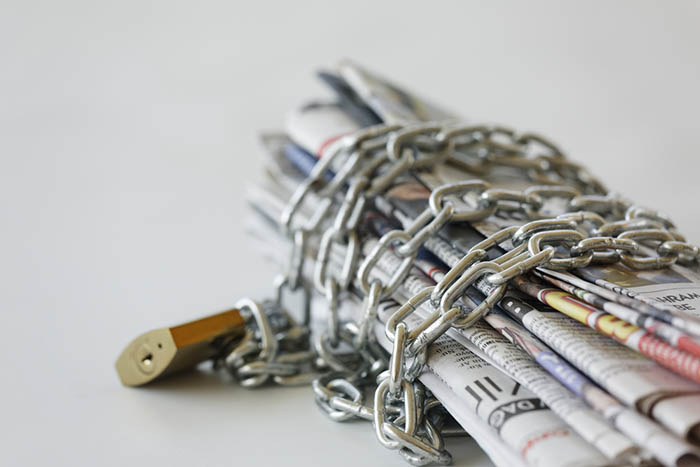
Each week, Index on Censorship’s Mapping Media Freedom project verifies threats, violations and limitations faced by the media throughout the European Union and neighbouring countries. Here are five recent reports that give us cause for concern.
Police detained Aleksandra Ageyeva, a correspondent for the media outlet Sota Vision, at a mass demonstration near the Russian Constitutional Court building on 24 January.
According to Ageyeva, she was detained while filming the detainment of a demonstrator who was protesting against the imprisonment of opposition human rights activist Ildar Dadin.
Dadin is the first Russian citizen to be convicted for a “repeated violation” under a new law on mass rallies and meetings by peacefully protesters. He is currently serving a two-and-a-half year prison sentence and claims that his captors repeatedly abuses him.
A total of four protesters were detained along with Ageyeva at the scene. The police explained that the demonstrators were detained because they were supposedly jaywalking. Ageyeva spent around 11 hours in police custody.
The General Prosecutor’s Office of Belarus ruled to extradite Alexander Lapshin, a Russian-Israeli travel blogger to Azerbaijan, on 20 January.
On 15 December 2016 he was detained in Minsk on an extradition request from Azerbaijan, where he is wanted for visiting the disputed region of Nagorno-Karabakh and for criticising Azerbaijani policies.
A criminal case under two articles of the criminal code was filed in Azerbaijan which, if convicted, can lead to a prison sentence from five to eight years.
Lisa Giachino, editor-in-chief of the environmental magazine L’âge de faire, was arrested on 20 January at the border with Italy in the Roya valley, as she was following migrants for a story, news website Basta reported.
She is believed to have been kept in custody since 5am for “assisting migrants at the border,” and because she does not have a press card the police have refused to believe she is a journalist.
According to Nice Matin newspaper, Giachino was following six migrants for the story.
Giachino was later freed. She told Libération: “[Police officers] told me: ‘If we see you again with migrants, careful!’ It’s not normal to tell this to a journalist.”
Oleksiy Bobrovnikov, an investigative journalist and special correspondent for TSN programme on 1+1 TV channel, publicly wrote on his Facebook on 10 January that he left Ukraine after receiving numerous threats.
Since 2015 Bobrovnikov has been investigating the fatal shooting of officers and volunteers who oppose smuggling along what is known as the “grey zone,” the dividing line between western Ukraine and the self-proclaimed Donetsk and Luhansk People’s Republics.
Bobrovnikov confirmed to Mapping Media Freedom that he left the country in mid-December because he feared his life was in danger. He said he had received five warnings connected with his investigation telling him his life was in danger.
“The threats ranged from a pat on the shoulder to threats coming from people with weapons in their hands. Other people investigating trade with occupied territories also received similar threats,” Bobrovnikov wrote.
According to Ukrayinska Pravda, two individuals working to fight against the smuggling were killed on 2 September 2015, near Schastye, a town in the Luhansk region.
St Helens Council passed a motion on 18 January calling on retailers in the borough to stop selling daily newspaper The Sun, The St Helens Star reported.
The motion is not enforceable by law, but recommends retailers do not distribute the publication.
At the council meeting on Wednesday evening, Parr councillor Terry Shields asked the authority to support the Total Eclipse of The Sun campaign, which the paper’s controversial coverage of the Hillsborough disaster as a reason to boycott.
The campaign describes itself as a peaceful campaign group with more than 50,000 members.
Councillors approved the motion at the town hall. The three Conservative councillors abstained from the vote.
A spokeswoman says: “We have enjoyed great success now having over 240 establishments not selling the paper. This includes small newsagents, major supermarkets and petrol stations. Cafes, pubs, hotels and local hospitals, have also joined in, showing their support to the campaign.”[/vc_column_text][vc_column_text]
Click on the bubbles to view reports or double-click to zoom in on specific regions. The full site can be accessed at https://mappingmediafreedom.org/
[/vc_column_text][/vc_column][/vc_row][vc_row][vc_column][vc_basic_grid post_type=”post” max_items=”4″ element_width=”6″ grid_id=”vc_gid:1485518684846-d4098701-7bc7-6″ taxonomies=”6564″][/vc_column][/vc_row]
[vc_row][vc_column][vc_column_text]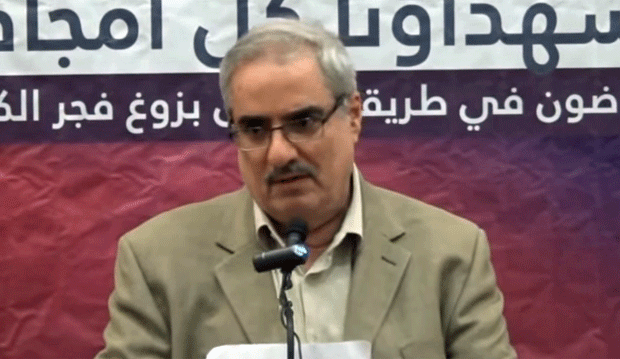
Bahrain’s public prosecution on Sunday 13 November charged leading opposition politician Ebrahim Sharif under article 165 of the penal code with “inciting hatred against the regime,” after he spoke to the Associated Press last week. We, the undersigned, consider this to be a violation of his right to freedom of expression and a reprisal against his political activity.
The charge carries a three-year sentence and comes after Prince Charles’ controversial visit to the Gulf monarchy last week. It is the latest development in the Bahraini government’s intensified crackdown on civil society in the past year.
Speaking on Prince Charles’ arrival in the country Sharif, the former leader of the secular National Democratic Action Society (Wa’ad), told AP he was afraid the visit would “whitewash” human rights abuses.
Sharif told AP: “I don’t see what’s gone on behind closed doors or whether the prince raised any questions of human rights. Bahrain’s government values its relations with the U.K. and if the U.K. puts its weight behind the improvement of human rights in Bahrain, the government will listen. They need friends.”
He further said: “All parties should compromise. We can’t have absolute power in the hands of the ruling family.”
“Ebrahim Sharif was expressing his opinion and no one should ever be prosecuted for that,” said Sayed Ahmed Alwadaei, Director of Advocacy at the Bahrain Institute for Rights and Democracy (BIRD). “Bahrain claims to be inclusive, that’s the image they tried to sell with Prince Charles’ visit. But Sharif’s prosecution reveals the barefaced lie.”
Prince Charles’ visit courted controversy, with campaigners accusing him of participating in a PR exercise aimed at hiding Bahrain’s poor human rights record. In his visit, the Prince of Wales highlighted religious tolerance in Bahrain, a theme also highlighted by visiting Middle East Minister Tobias Ellwood MP, visiting the Al Fateh Grand Mosque and Bahrain’s Hindu temple, and meeting members of the country’s Jewish community. But the royal tour failed to meet with members of the Shia community, who make up a majority of Bahrain’s citizen population, and who have faced heightened discrimination from the government in the past months. In August, five UN experts called on Bahrain to end its “persecution of Shias”.
Ebrahim Sharif is the former Secretary General of Wa’ad. He was a member of the Bahrain 13, a group of high profile activists arrested, tortured and sentenced by military court in 2011. He was released in June 2015, but re-arrested weeks later and sentenced to another year in prison for a political speech he gave calling for continued peaceful opposition. Sharif was released from prison in July 2016. He is currently under a travel ban order.
At the time of Sharif’s June 2015 release, the US State Department lifted an arms ban on Bahrain, citing “meaningful progress on human rights.” However, Bahrain’s Ministry of Interior re-arrested him less than three weeks later on charges of “inciting regime change and hatred and contempt against the regime.” A court found him guilty and sentenced him to one year in prison. As a result of the deteriorating human rights situation in the country, including Sharif’s re-arrest, both the US Senate and House of Representatives introduced bipartisan legislation calling for the resumption of an arms ban on the Bahrain Defense Force (BDF) and National Guard, forbidding the sale of weapons that could be used to suppress peaceful dissent. The bills would allow for the sale of arms only after the Secretary of State certifies that the Bahraini government has fully implemented all 26 recommendations made by the Bahrain Independent Commission of Inquiry (BICI) in 2011. As of 2016, the US State Department assessed that key recommendations of the BICI still have yet to be implemented by the Bahraini government and, Americans for Democracy & Human Rights in Bahrain (ADHRB), the Bahrain Center for Human Rights (BCHR), and BIRD have found that only two of the Commission’s recommendations have been fully implemented.
“Though the Bahraini government continues to falsely claim that it has implemented all 26 BICI recommendations, virtually all independent assessments reveal a complete failure to reform on key human rights issues,”said Husain Abdulla, Executive Director of ADHRB. “The prosecution of Ebrahim Sharif for his interview with AP follows the authorities’ decision to similarly charge prominent human rights defender and BCHR president Nabeel Rajab for his open letter in the New York Times. These actions clearly demonstrate that the government remains committed to suppressing all forms of criticism.”
The Government of Bahrain’s actions violate the freedom of expression, as protected under Article 19 of both the Universal Declaration of Human Rights and the International Covenant on Civil and Political Rights, which Bahrain acceded to in 2006.
We condemn this violation of the right to free expression and call for the immediate dropping of all charges against Ebrahim Sharif, and all other persons prosecuted for their speech.
Signed,
Americans for Democracy & Human Rights in Bahrain (ADHRB)
Bahrain Center for Human Rights (BCHR)
Bahrain Institute for Rights and Democracy (BIRD)
European Centre for Democracy and Human Rights (ECDHR)
Index on Censorship[/vc_column_text][/vc_column][/vc_row][vc_row][vc_column][vc_basic_grid post_type=”post” max_items=”4″ element_width=”6″ grid_id=”vc_gid:1479198588631-d2e752f2-c2f3-0″ taxonomies=”7706″][/vc_column][/vc_row]

Nabeel Rajab during a protest in London in September 2014 (Photo: Milana Knezevic)
Join Index on Censorship, English Pen and the Bahrain Institute for Rights and Democracy for a vigil outside the Foreign and Commonwealth Office at 12 pm on Thursday 6 October to mark the trial of Bahraini human rights activist Nabeel Rajab, who could be sentenced to up to 15 years in prison.
The Index on Censorship Freedom of Expression Award-winning Rajab has been subjected to ongoing judicial harassment by Bahrain’s government.
Your support will show the UK government that it must do more to pressure its ally Bahrain to respect freedom of expression and release Rajab unconditionally.
When: Thursday 6 October at 12pm
Where: Foreign and Commonwealth Office, King Charles Street, Whitehall, London SW1A 2AH (Map)
More information about Nabeel Rajab:
Bahrain: Nabeel Rajab put in isolation ahead of 6 October trial
Prince Charles to visit Bahrain: Here are some things he should consider
This is in connection to comments made on Twitter in 2015 documenting allegations of torture at the Central Jau Prison and criticizing the Saudi coalition war in Yemen.
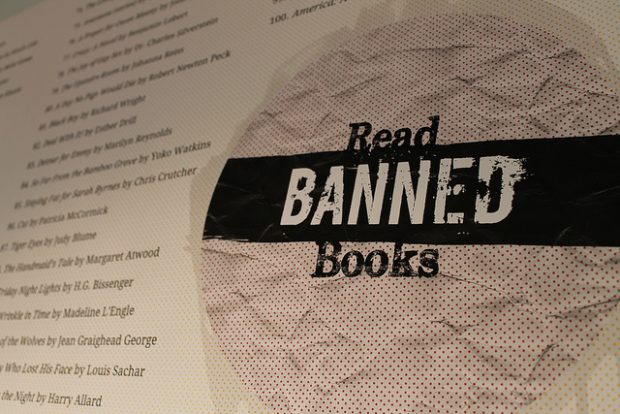
Credit: Kennedy Library
Monday marked the beginning of Banned Books Week. To celebrate the freedom to read, Index on Censorship staff explore some of their favourite, and some of the most important, banned or challenged books.
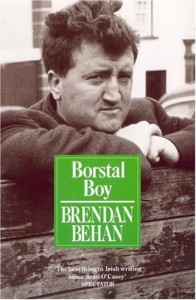
Ryan McChrystal – Borstal Boy by Brendan Behan
Brendan Behan’s autobiographical work Borstal Boy was banned in Ireland in December 1958. His London publisher, Hutchinson’s, had sent a batch of copies to Dublin to be sold at a Christmas market but they were confiscated at the port. Behan was outraged that a group of “country yobs” could prevent the distribution of his book.
Borstal Boy is the story of how a 16-year-old Behan landed himself in a series of institutions for young offenders in Kent, having been charged with membership of the IRA, and what happened to him after that.
Although Ireland’s Censorship of Publications Board never explained why the book was banned, it probably had something to do with its depictions of adolescents talking about sex and its pillorying of Irish social attitudes, republicanism and the Catholic Church. The board is, after all, known for its stringent adherence to Roman Catholic values.
When Behan later learned that the book was also banned in Australia and New Zealand, he took solace in song and humour as he went around Dublin singing:
“My name is Brendan Behan, I’m the latest of the banned
Although we’re small in numbers we’re the best banned in the land,
We’re read at wakes and weddin’s and in every parish hall,
And under library counters sure you’ll have no trouble at all.”
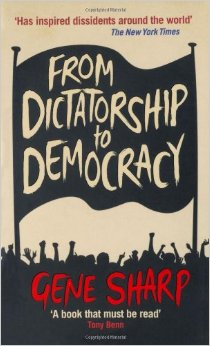
David Heinemann – From Dictatorship to Democracy by Gene Sharp
Running the Freedom of Expression Awards’ Fellowship and helping brave people who are often fighting totalitarian regimes can sometimes feel like an uphill battle. How can one person or organisation ever hope to defeat an entire dictatorship?
They can’t, of course, but Gene Sharp’s little book reminds me that “the deliberate, non-violent disintegration of dictatorships” is possible when people work together in certain ways. Part handbook, part political pamphlet, it’s an invaluable toolbox for any serious democratic activist. Its potency was illustrated last year when a group of young Angolans were imprisoned simply for trying to get together and discuss it at a book club.
The fact that I could read it on my commute home reminded me never to take my freedoms for granted.
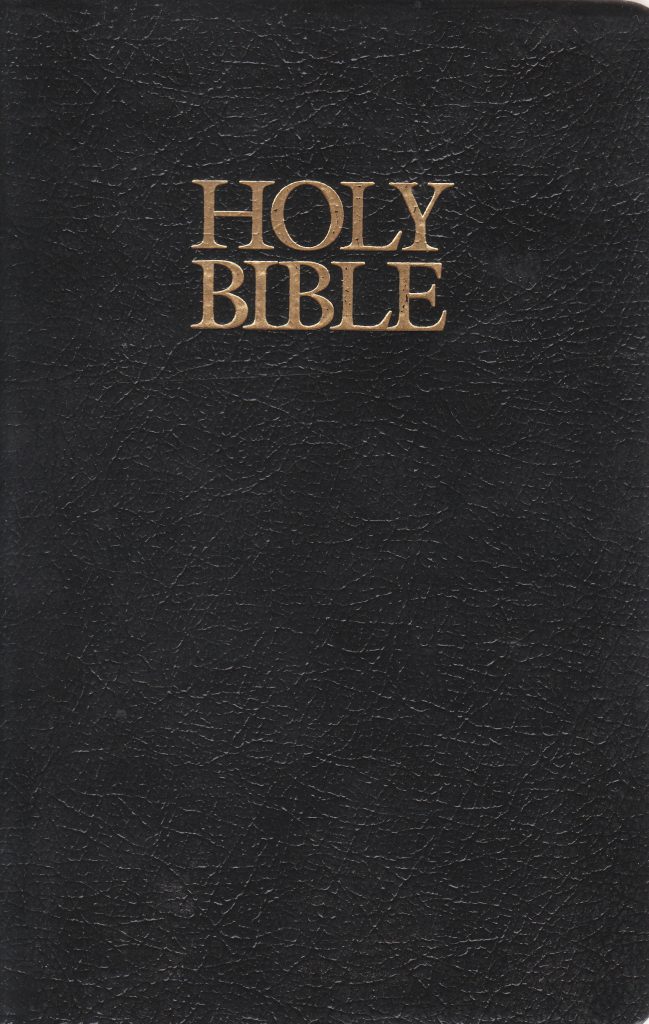
Vicky Baker – The Bible
The Bible is not an obvious choice for me as I’m an atheist, but loosely picking up on that misattributed Voltaire quote, I would defend anyone’s right to read it – or indeed any other religious book.
Pope Francis has called The Bible “an extremely dangerous book”. Owning it or reading it can get you still get you imprisoned or killed in certain parts of the world. This is the sort of book banning that we should all be extremely worried about, whatever your religion.
These days I don’t even have a copy in my house, but its stories formed part of my childhood. When I grew up I learnt that my hometown, Amersham in Buckinghamshire, also had an important connection to censorship of The Bible. In the 16th century a group of local Lollards were burned at the stake for wanting to translate the book from Latin to English; some of their children were forced to light the pyre.
Known as the Amersham Martyrs, they have since been honoured in a memorial stone, costumed walking tours, and through occasional community plays about their lives, staged in a local church. (Imagine if the bishop who sentenced them saw this today.)
Sadly, we live in a world where censorship of the Bible is not ancient history. In 2014, an American man was sent to labour camp in North Korea for leaving a Bible in a restaurant’s bathroom when visiting as a tourist. It was deemed a crazy act – and, indeed, the move also endangered his local tour guides – but it is outrageous that simply leaving a book behind, so readers can choose to pick it up or not, can still lead to such punishments.

David Sewell – The Things They Carried by Tim O’Brien
One of those cases in the USA where the pressure to ban comes not from the authorities, but from citizens wanting it pulled from libraries or schools. Complaints were made about its sweary language and its graphic depictions of violence and death. But there again it’s about a grunt’s eye view of the Vietnam war, so go figure.
Only this is really a remarkable work of fiction, which is highly literary in its narrative form. It uses stories to try and construct the extreme experience of war, but also uses war to explore the drive to create stories for ourselves. Language is used to defang terror on the battlefield, stories are invented (and embellished through the re-telling) to keep dead comrades alive, because if they are allowed to die, then it brings death one step closer to the surviving soldiers.
A fascinating book that tries to put words to the unsayable and unspeakable, and its would-be censors are attempting to make it a different kind of unspeakable and unsayable.
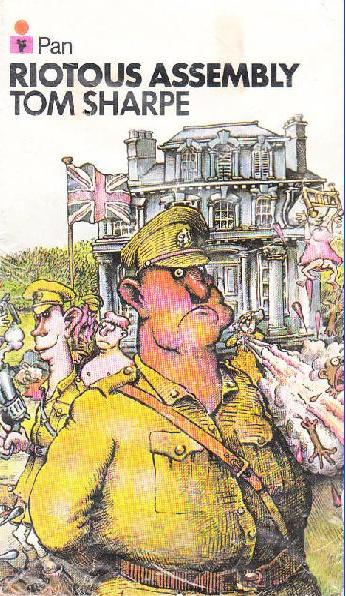
Kieran Etoria-King – Riotous Assembly by Tom Sharpe
One of the most enduring, darkly funny things I’ve ever read was the opening chapter of Tom Sharpe’s 1971 novel Riotous Assembly, in which a South African police chief argues with an old white woman who shot her black chef in the garden of her stately home. As two deputies collect up the obliterated corpse of the man she killed with a four-barrelled elephant gun, Miss Hazelstone, who graphically describes her illicit love affair with the chef, demands to be arrested for murder, while a disgusted Kommandant van Heerden insists that the killing of a black person is not murder. Meanwhile, the entire police force of the fictional town of Piemburg, operating under mistaken intelligence, are engaged in a fierce and escalating firefight at the gate, unaware that they are actually shooting at each other from behind cover.
Sharpe had lived in South Africa from 1951 to 1961 before he was deported over a play he staged that criticised the government, so he had an intimate knowledge of the country and Riotous Assembly, a hilarious send-up of the South African police force, is driven as much by real venom and contempt for the Apartheid system as it is by vulgar humour. Of course, that system wasn’t going to tolerate such mockery and the book was banned in South Africa as well as Zimbabwe.
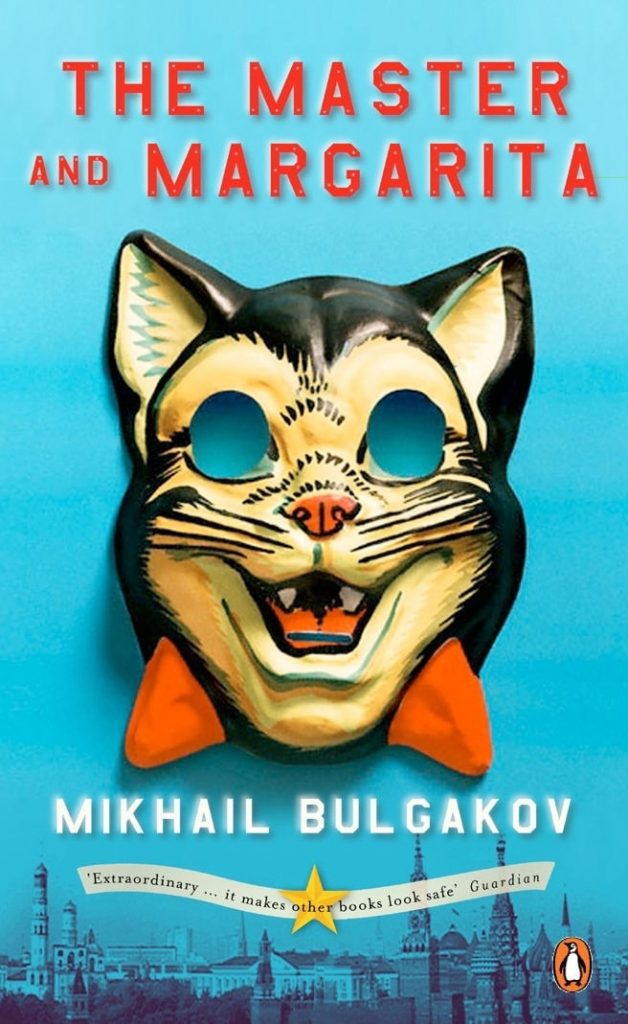
Helen Galliano – The Master and Margarita by Mikhail Bulgakov
I first came across The Master and Margarita – considered to be one of the finest novels to come out of the Soviet Union – as a performance student at Goldsmiths and a lover of magical realism. I immediately fell into Bulgakov’s wild and dangerous world of talking cats, decapitations, magic shows, Satan’s midnight ball and plenty of vodka. I was hooked, reading it multiple times throughout my third year and even created a performance reimagining Margarita’s transformation into a witch.
The forward to the 1997 translation of the novel reads: “Mikhail Bulgakov worked on this luminous book throughout one of the darkest decades of the century. His last revisions were dictated to his wife a few weeks before his death in 1940 at the age of forty-nine. For him, there was never any question of publishing the novel. The mere existence of the manuscript, had it come to the knowledge of Stalin’s police, would almost certainly have led to the permanent disappearance of its author.”
Faced with persecution, Bulgakov burned the first manuscript of The Master and Margarita, only to re-write it later from memory. It was eventually published nearly three decades after his death and since then “manuscripts don’t burn”, a famous line from the book, has come to symbolise the power and determination of human creativity against oppression.
Great literature and great ideas will always survive.
What’s it like to be an author of a banned or challenged book? How can librarians support authors who find themselves in this situation? To mark Banned Books Week, Vicky Baker, deputy editor of Index on Censorship magazine, will chair an online discussion with three authors on 29 September, followed by a Q&A. It is free to join, although attendees must register in advance.